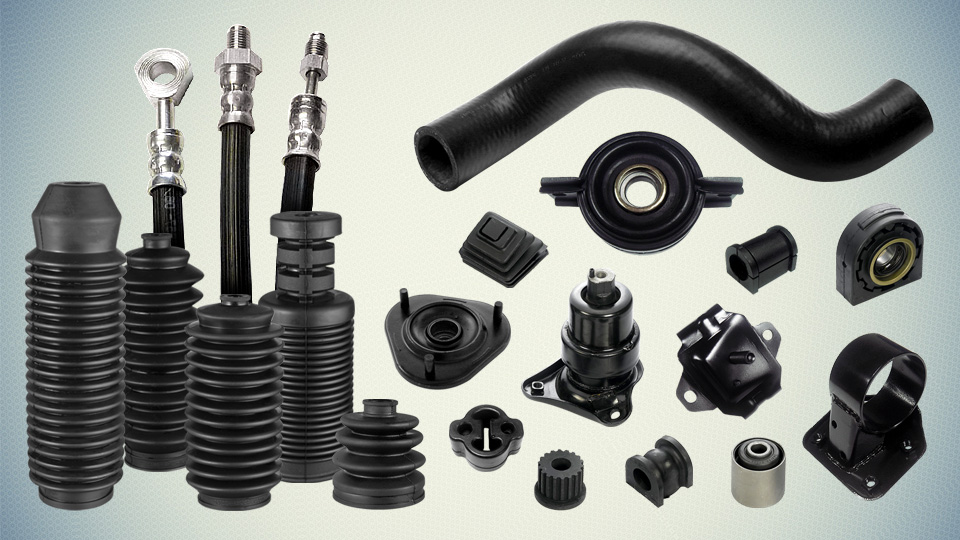Contrary to popular belief, metal is not the only thing that matters in cars. Of course, the shiny and sleek metal is what people notice because it takes up a massive portion of the vehicle and makes up the design. But in the auto manufacturing industry, high-quality rubber plays a significant role too. It’s a vital raw material that’s used for many car parts. Some may be small, but a car won’t run properly without them.
Many would typically associate rubber with tires. They take the internal systems for granted, but these usually rely on rubber to make the whole car function efficiently. Of note, car manufacturers depend on an expansive range of good-quality rubber parts to complete an automobile. By the same token, car warranty companies also pay close attention to rubber because components like hoses, seals, and pads often suffer from wear and tear over time. And cheaper rubber breaks down more often than the high-quality variant, resulting in more claims.
Since rubber is a vital material for many car components, auto manufacturers seek a high-quality source. Manufacturers want rubber that can withstand high-volume use and the passage of time. Without this component, the vehicle will not work correctly. Selecting the best rubber materials could help manufacturers build a good reputation. In contrast, poorly made and cheap rubber could result in monetary losses because of warranty claims due to faulty car parts. For vehicle manufacturers, their reputation hinges on quality rubber that’s strong, sturdy, and designed to withstand the rigors of daily use.
Uses of Rubber in Auto Manufacturing
The auto manufacturing industry uses a lot of rubber because of its salient, versatile features that make it appropriate for many applications. Rubber is extremely flexible, highly durable, and with good tear strength. It can resist abrasion, grease, petroleum, and ozone. Good quality rubber is not flammable and can sustain hot and cold temperatures. Since rubber has these characteristics, car manufacturers use rubber products not just for tires.
Today, auto manufacturers rely on rubber for many components that enable an automobile to work. Rubber could be found in almost all major vehicle systems, such as in the following:
- Engine’s internal seals
- Grommets that connect the fuel system
- AC system’s belts
- Hosing mechanisms
- Gaskets and o-ring
- Brake pads
- Vehicle liners and matting products
High-quality Rubber Is Essential in Auto Manufacturing
Cars undergo a lot of intense pressure and take a beating with prolonged daily use. Car components must withstand high speeds, constant vibration, and motion from whirring engines to bumpy road surfaces. On top of that, vehicles and their parts are exposed to harsh environmental elements like the sun, rain, snow, wind, and hail. These weather fluctuations, coupled with normal wear and tear, put a lot of pressure on rubber parts.
These components must be of high-quality materials to endure the rigors of daily use. In general, the average lifespan of an automobile is around 12 years. Hence, car parts are expected to endure this long. The auto industry relies on rubber to complete automobiles. High-quality rubber provides some of the following functions:
- Helps internal systems hold up against vibrations
- Provides cushion and tight seals to prevent gas, oil, and other liquid leakages
- Ease friction among moving parts like rotational and translational moves between joints
- Assures each car part operates independently (as needed) and efficiently
However, it is essential to note that car components are not created equal. Some rubber parts like car door gaskets can be readily found and replaced. Meanwhile, parts like engine rubber seals are trickier and more complex. Since they are essential in the vehicle’s smooth operation, they need replacement in case of breakdown. Because they require extensive work to fix, the labor fees could be very costly. Manufacturers that use poor-quality rubber encounter problems frequently.
As a result, clients cannot help but think the brand is of poor quality. They automatically doubt the safety and reliability of all the vehicles under the brand. Frequent breakdowns are also associated with the high cost of ownership, and most buyers tend to shy away from these brands. Moreover, if these rubber parts become damaged while the car is still under the original factory warranty, the repairs would have to be shouldered by the automaker. In the long run, costs accumulate and decrease the company’s profitability.
Reduce Issues With a High-quality Supplier
Auto manufacturers must work with the right rubber supplier to deliver high-quality goods on time. If parts are sub-par or delayed, the auto manufacturer’s production could also stop. More importantly, when rubber components don’t meet quality standards, it could translate to high warranty costs that eat away the profits. The worst is that it could damage the brand due to expensive and embarrassing recalls and lawsuits because of safety issues.
To avoid these problems, auto manufacturers must work with a high-quality rubber supplier known for providing stellar service for years to a roster of happy clients. A rubber supplier must consistently conduct quality assurance tests with proper documentation to prove their rubber products are solid and durable. The best supplier is updated on industry trends and uses state-of-the-art equipment because only these can provide high-quality rubber materials that pass industry standards.







